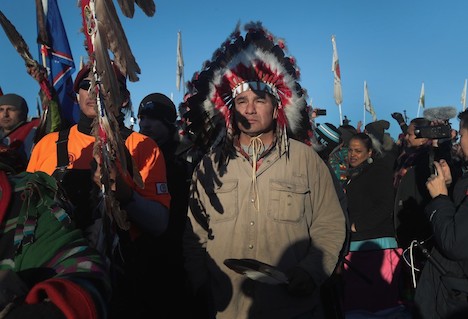An eight-justice Supreme Court just decided a major Indian law case by, well, not deciding it. The justices split 4-4 and issued a per curiam decision, or a decision on behalf of the court that doesn’t specify how each justice voted. Any time the court splits, the lower court’s decision stands. The litigation in question surrounds the salmon rights of 21 Northwest Indian tribes who, along with the federal government, sued the state of Washington to replace nearly 1,000 culverts. The case began under the Ninth Circuit Court of Appeals in the 1970s—that’s why Justice Anthony Kennedy, then on that court, had to recuse himself. It’s a modern twist on an issue that dates to the 1850s: From tribes’ right to fish salmon, established in the Stevens treaties, we arrive at tribes’ right to keep the state from taking actions that impede the salmon that tribes have a right to fish. Here that means Washington has to replace culverts that have degraded fish habitats and reduced fish populations. Washington Indian law and water rights attorney J. Nathanael Watson explains the immediate implications: This decision could impact more than just Washington’s culverts, including, potentially, a variety of development, construction, and farming practices throughout the Northwest. The most direct implication? Parties from developers to municipalities to states themselves, as here, cannot rely on authorizations that predate this decision when it comes to activities that could significantly affect fish populations. They’re going to have to engage tribes. Ideally, tribes won’t have to litigate, and the parties will be able to reach the most efficient resolution without litigation. But it’s a major coup to have a legal avenue of recourse if negotiation fails or cooperation falters. Moreover, tribes now have reason to examine other treaty rights in relation to state and private actions—and not just surrounding the rights to fish and hunt. As noted in an earlier write-up, Professor Monte Mills, of the University of Montana, has speculated that this outcome could have implications for diverse tribal movements, like those to preserve Bears Ears and fight the Dakota Access pipeline. At a minimum, we can hope governments and corporations alike will get the message that the Supreme Court may be more receptive to a modern, and protective, orientation toward tribal rights than anticipated. Source URL |
